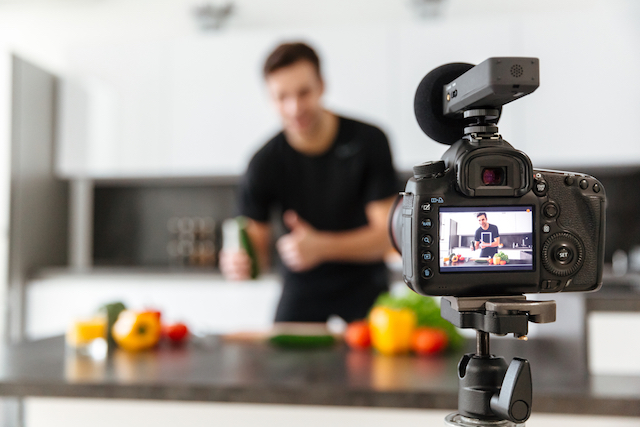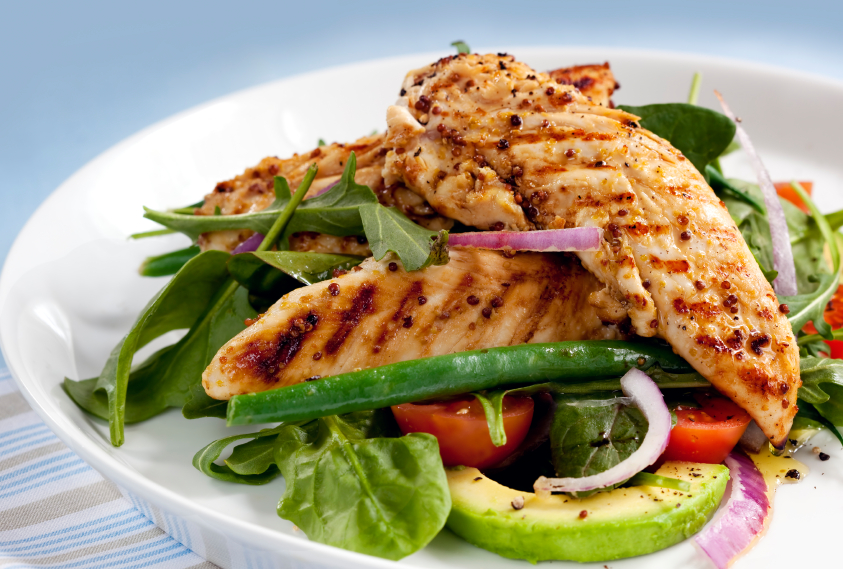- Home
- Blog
- Healthy Eating for Wellness
- Why is nutrition SO hard?
Why is nutrition SO hard?
Written by Catherine Saxelby
on Wednesday, 22 January 2020.
Tagged: health, healthy cooking, healthy eating, healthy lifestyle, nutrition

In this era of fake news, wellness bloggers and celebrity chefs, it’s hard to know who to believe. For instance, should I go vegan? Should I eat Paleo (or Keto)? Should I quit sugar? Is eating raw food best? Does skim milk have more sugar than full-cream milk? Can I eat eggs?
The world of nutrition does contain competing theories and differing opinions but when you add in internet fake facts it not only causes some legitimate confusion but also spawns fearmongering, lack of trust, and ‘nutri-babble’.
The internet is filled with so many judgemental and shaming comments towards those who don’t follow the one, righteous path – it’s sounding more and more like food has become a religion. Some vegans are screaming all meat is poison, the Paleo tribe scream all grains are poison, and the Raw foodies say all cooked food is poison. So, what is it then that we are supposed to eat?
Reasons why nutrition is so hard
I see four reasons why there is so much confusion around what we eat. There has been:
- A huge rise in influencers in the digital age who give heaps of alternative advice on health. We now have an industry of self-appointed ‘lifestyle gurus’ who often ‘muddy the waters’ of nutrition and leave us feeling overwhelmed.
- An erosion of trust in the expert professional such as a dietitian or doctor.
- A lot of criticism of professional bodies such as the Heart Foundation, Dietitians Australia and Dietary Guidelines. Sometimes it’s the contradictory advice they release, sometimes it’s reversals of a tightly-held position.
- Examples of supplements and medicinal foods making outrageous claims which have often been called ‘Nutribollox’ by dietitians such as Judith-Anne Swift. Think overpriced and crackpot.
Let’s look at these one at a time

- Lifestyle Influencers
Unfortunately, a downside of the all-pervasive Social Media is that unqualified celebrities and sometimes unscrupulous media savvy people are able to hijack healthy messages to promote their own agendas and become ‘lifestyle influencers’. I’d like to take a look at two prime examples - a prime example of the former lifestyle influencer is Pete Evans, the celebrity chef and an example of the second is Belle Gibson the fraudulent scammer and pseudo-science advocate who shot to fame after claiming she healed her terminal brain cancer with wholefoods and eating right.
Pete Evans
With a nice tan and great teeth and hundreds of thousands of followers on Facebook, Instagram and his own Paleo Way system, he has taken the ride from Paleo to low-carb and then Keto – on the trends.
So, what’s the problem? The problem is that a lot of what he advocates is pseudo-science (think activated almonds, alkalinised water, bone broth for babies and his anti vaccination, anti fluoridation and anti sunscreen stances etc.). And while he appears passionate about his beliefs, he still eats desserts, rice, pasta and bread when he appears on My Kitchen Rules – none of which are part of the lifestyle he promotes.
Evans has said he completed an online course with the Institute for Integrative Nutrition in New York City in USA and describes himself as a "health coach" rather than a dietitian. He has embraced the Paleo diet with all its intricacies.
The problems caused by people like Pete Evans is that their advice is followed by thousands, uncritically, not because of his ‘qualifications’ but because of his celebrity and charisma. If you want a more balanced view of the Paleo diet, take a look at what I have written on the Foodwatch website before here and here.
Belle Gibson
Her rise to fame and fall from grace were very public. Annabelle "Belle" Gibson (aged 23) shot to fame after claiming she healed her terminal brain cancer with wholefoods and eating right. She authored “The Whole Pantry” App and its later companion cookbook published by Penguin (withdrawn from sale with a huge fine for Penguin).
Throughout her career as a wellness guru, Gibson claimed:
- she had a diagnosis involving brain cancer
- she had forgone modern science-based medical treatments
- she was effectively self-managing her cancer through diet, exercise and alternative therapies
- to have donated significant proportions of her income to numerous charities (which was never true).
In 2015, investigative journalists, Beau Donelly and Nick Toscano, uncovered the truth and Gibson was exposed. Their book “The Woman Who Fooled the World” explores the lure of alternative cancer treatments, the cottage industry flourishing behind the wellness and ‘clean eating’ movements, and the power of social media to persuade.
At her peak, she had over 200,000 Followers, international book deals, and a best-selling smartphone App, yet she was a fraud. She had lied about having cancer — to her family and friends, to her business partners, her publishers, and to the hundreds of thousands of people, including genuine cancer survivors, who were inspired by her Instagram posts.
Sadly, her book is still on Amazon! I wouldn’t advise you to buy it.
- Erosion of trust in professionals
Conflicting information from doctors and dietitians over the years has left people feeling sceptical about their advice and uncertain whom to trust.
- Criticism of Professional bodies
When bodies such as the Heart Foundation reverse their once fiercely-advocated positions on foods such as eggs and dairy foods, ordinary people question whether any of their advice can be trusted.
- Outrageous claims for supplements
Expensive regimes of supplements with almost ‘snake oil’ claims leave consumers feeling let down once again. They take the supplements which are supposed to do everything from reversing arthritis to counteracting the negative effects of lectins which just leave them with lighter wallets.

The bottom line
My view is now, and has always been, that healthy eating should be easy, not hard!
If something sounds too crackpot, over-priced or the claims sound too good to be true or they’re spruiked by a celebrity with few, if any, proper qualifications, then you’d be wise to investigate further.
Remember everyone’s body is different and it pays to find what is right for you. There’s an old saying “No one size fits all’ and it’s never been truer than in the world of diets and nutrition.
The best solution? Adopt a middle-of-the-road approach with an appreciation of life and eating. You wouldn’t want to eat cake all the time but the odd wedge won’t undo an otherwise healthy diet.
This is an edited summary from a keynote presentation by Catherine Saxelby to the Home Economics Institute of Australia in August 2019
You may also be interested in...
Jemma O'Hanlon
The Good Stuff
The Boring Stuff
© 2025 Foodwatch Australia. All rights reserved
Website by Joomstore eCommerce





